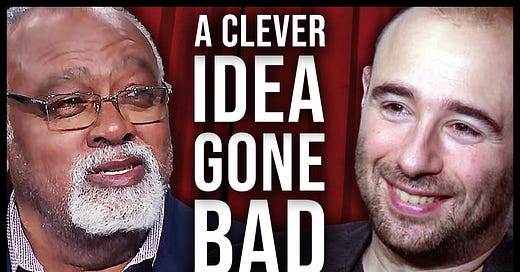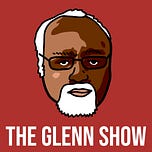John McWhorter and I had to postpone our regularly scheduled conversation, as he was feeling under the weather. He’ll be back next week, along with Tyler Austin Harper and Daniel Bessner. This week, my guest is political scientist Yascha Mounk. He’s the author of several books, most recently The Identity Trap: A Story of Ideas and Power in Our Time. Yascha’s book traces the intellectual history of our current cultural obsession with identity back to its origins in the theoretical work of figures like Michel Foucault, Edward Said, Gayatri Spivak, and Derrick Bell. It’s a clarifying work that argues for a form of universalism that would allow us to retain the identity affiliations that imbue many of us with a sense of community and history while, at the same time, loosening their grip on our politics and policy.
Yascha prefers the term “identity synthesis” to “identity politics” or “wokeness,” and he explains its benefits. So how did we get from midcentury French philosophy to riots in the US in 2020? Yascha sketches an intellectual history of identity synthesis, starting with Foucault’s work on power and discourse, moving through the postcolonial theory of Said and Spivak, and ending in the critical race theory of Bell and Kimberlé Crenshaw. Most of the theorists Yascha discusses are intellectual heavyweights, whatever you think of the merits of their ideas. Robin DiAngelo and Ibram Kendi couldn’t carry their book bags. So why are those two the current avatars of CRT? And finally, I ask Yascha to explain his vision of universalism in the name of solidarity.
This post was released on Monday to paying subscribers and is now unlocked. To receive early access to TGS episodes, an ad-free podcast feed, Q&As, and other exclusive content and benefits, click below.
Sign Up for City Journal’s Newsletter
City Journal provides rigorous analysis that allows you to reach your own conclusions, rather than rehashing ideologically “safe” talking points. Explore it for yourselves and sign up for their free newsletter today.
0:35 A quick announcement
1:46 What led Yascha to write about identity
6:22 An intellectual history of “identity synthesis”
12:15 What’s so bad about “strategic essentialism”?
19:15 From postmodernism to post-civil rights
28:45 The three key claims of identity synthesis
36:02 What led up to the summer of 2020?
45:51 The hermetically sealed ideology of Kendi and DiAngelo
50:45 Yascha’s defense of universalism
Recorded October 3, 2023
Links and Readings
Yascha’s new book, The Identity Trap: A Story of Ideas and Power in Our Time
Michel Foucault’s book, The Order of Things: An Archaeology of the Human Sciences
Edward Said’s book, Orientalism
Gayatri Spivak’s essay, “Can the Subaltern Speak?”
Glenn’s debate with Kmele Foster, Shelby Steele, Robert Woodson, and Reihan Salam
Karen and Barbara Fields’s book, Racecraft: The Soul of Inequality in American Life
Tommie Shelby’s book, We Who Are Dark: The Philosophical Foundations of Black Solidarity
Noam Chomsky and Michel Foucault’s 1971 debate on Dutch television
Derrick Bell’s book, Faces at the Bottom of the Well: The Permanence of Racism
Mahalia Jackson singing “We Shall Overcome”
Roy D’Andrade’s article, “Moral Models in Anthropology”














Share this post